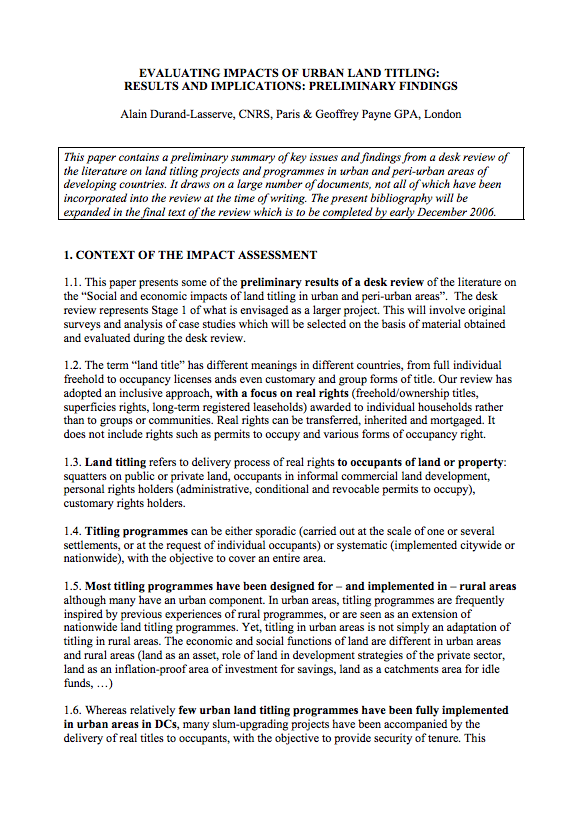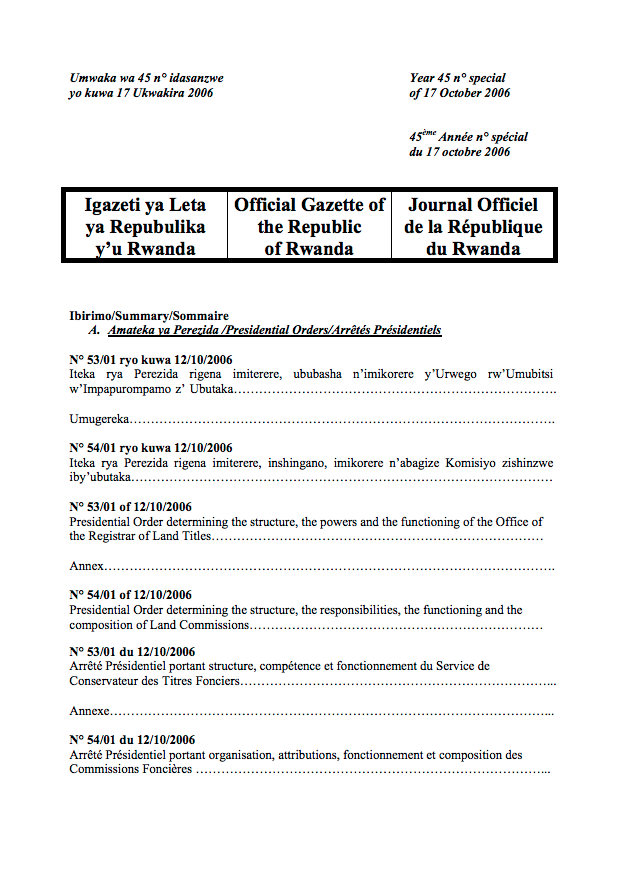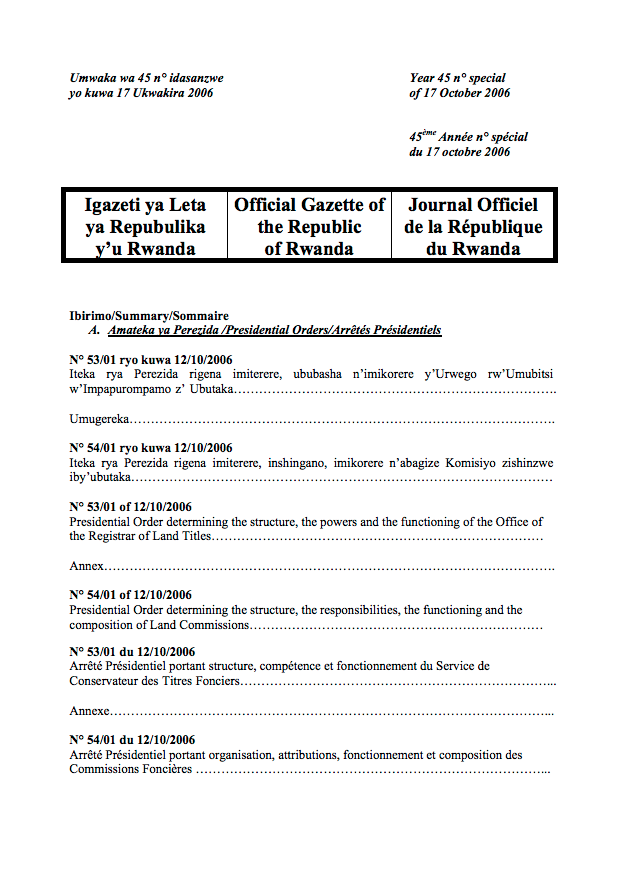The LAND Project is a five year program supported by the United States Agency for International Development (USAID). Its primary goal is strengthening the resilience of Rwandan citizens, communities and institutions and their ability to adapt to land-related economic, environmental and social changes.
Resilience is defined as “the ability to withstand or recover from difficult conditions.” It also comprises the ability of human and ecological systems to recover from shocks or difficult changes, and to transform to a better condition by responding flexibly and creatively to stress factors. In Rwanda, land tends to be one of the primary assets citizens rely on to buffer against difficult conditions and rapid change.
The project’s central objectives are twofold:
1.Increased capacity of local Rwandan institutions to generate high quality, evidence-based research on land-related issues that can be used by the Government, civil society organizations, and Rwandan citizens.
2. Increased understanding of land laws, policies, regulations, and legal judgments on land-related issues by GOR officials, local civil society organizations, research institutes and citizens.
Key outcomes of the project include:
- Holding annual National Land Research Agenda workshops to establish the research priorities of land sector stakeholders that the LAND Project will support. These workshops bring together multiple stakeholders from government, civil society and the research community;
- Supporting research on land-related issues through competitive awards to Rwandan research institutions, universities, and civil society organizations, and providing tailored capacity building assistance to improve research and advocacy capabilities;
- Offering training and other support to legal assistance providers to enhance their capacity to support women and vulnerable populations in understanding and realizing their land rights;
- Training local land authorities on the implementation of the land law and regulations.
- Carrying out research on critical land issues, including gendered land rights in practice, community rights to resources in and around protected areas, and expropriation.
- Managing a land-focused website to improve research, communications, and policy advocacy efforts that are focused on land, and to act as a vehicle for enhancing collaboration between actors working in the land sector;
- Providing organizational development support to civil society organizations supporting women’s land rights.
- Supporting innovative and coordinated communications approaches by civil society and government that enhance the knowledge of Rwandan citizens about research findings and their land rights.
Because the LAND Project is a five year endeavor, we are seeking an institution that has the interest, capacity, skills and resources to eventually take over hosting and maintenance of the website, ensuring it stays up-to-date and relevant to the land sector stakeholder community. If your organization is potentially interested in assuming management of this site, please contact us and tell us why you believe your institution would be an ideal candidate.
Members:
Resources
Displaying 101 - 105 of 149Improving Tenure Security for the Rural Poor. Rwanda – Country Case Study
Most of the world’s poor work in the “informal economy” – outside of recognized and enforceable rules.
Thus, even though most have assets of some kind, they have no way to document their possessions
because they lack formal access to legally recognized tools such as deeds, contracts and permits.
The Commission on Legal Empowerment of the Poor (CLEP) is the first global anti-poverty initiative
focusing on the link between exclusion, poverty and law, looking for practical solutions to the challenges
Evaluating Impacts of Urban Land Titling: Results and Implications: Preliminary Findings
This paper contains a preliminary summary of key issues and findings from a desk review of
the literature on land titling projects and programmes in urban and peri-urban areas of
developing countries. It draws on a large number of documents, not all of which have been
incorporated into the review at the time of writing. The present bibliography will be
expanded in the final text of the review which is to be completed by early December 2006.
Evaluating Impacts of Urban Land Titling: Results and Implications: Preliminary Findings
This paper contains a preliminary summary of key issues and findings from a desk review of
the literature on land titling projects and programmes in urban and peri-urban areas of
developing countries. It draws on a large number of documents, not all of which have been
incorporated into the review at the time of writing. The present bibliography will be
expanded in the final text of the review which is to be completed by early December 2006.
Presidential Order N° 54/01 of 12th October 2006 Determining Structure, Responsibilities, Functioning and Composition of Land Commissions.
Presidential Order N° 54/01 of 12th October 2006 Determining Structure, Responsibilities, Functioning and Composition of Land Commissions.
Published on the 17 October 2006.
Prime Minister’s Order N° 17/03 of 9 October 2006 Establishing the Task Force in Charge of Land Reform and Management in Rwanda.
Prime Minister’s Order N° 17/03 of 9 October 2006 Establishing the Task Force in Charge of Land Reform and Management in Rwanda.
Published on the 17 October 2006.





